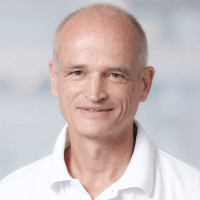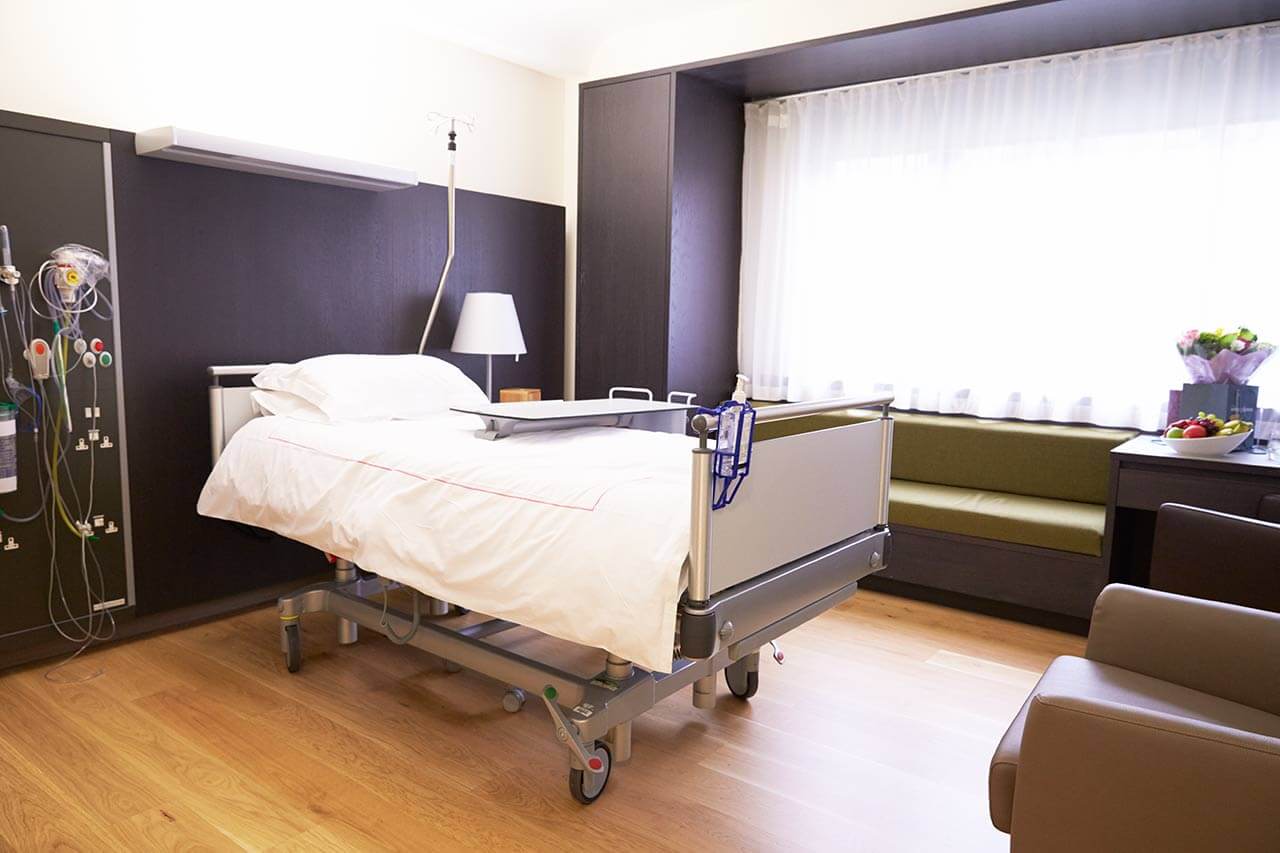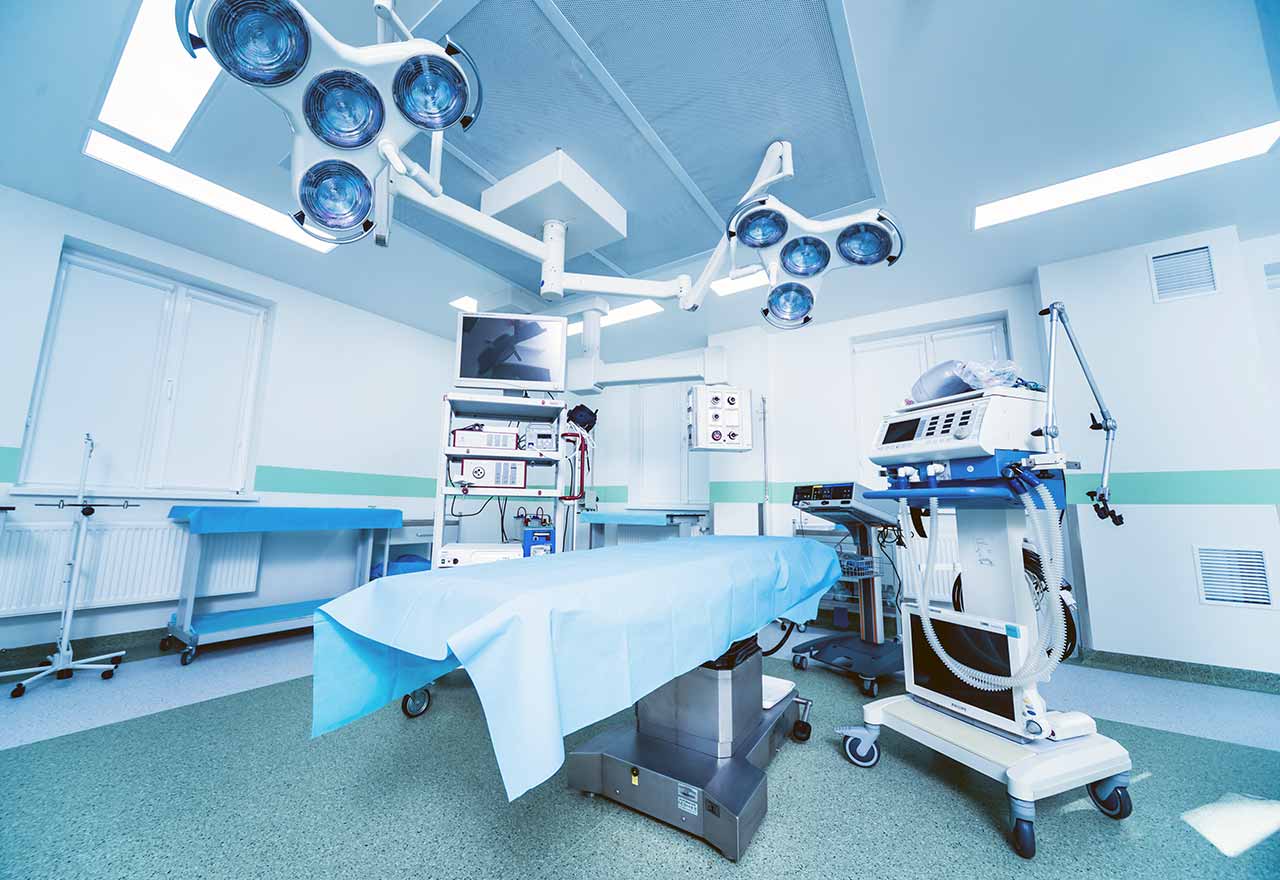
The program includes:
- Initial presentation in the clinic
- clinical history taking
- review of medical records
- physical examination
- laboratory tests:
- complete blood count
- biochemical blood test
- inflammation markers (CRP, ESR)
- blood coagulation analysis (aPTT, PT, INR)
- ultrasound of the abdomen
- gastroscopy
- 24h esophageal pH metry
- esophageal manometry
- surgical treatment with LINX system (magnetic ring LINC included)
- symptomatic treatment
- control examinations
- the cost of essential medicines and materials
- nursing services
- full hospital accommodation
- explanation of future recommendations
Service
You may also book:
 BookingHealth Price from:
BookingHealth Price from:
About the department
The Department of General and Abdominal Surgery, Hernia Surgery, Endocrine Surgery, Colorectal Surgery at the Albertinen Hospital Hamburg offers the full range of surgical interventions for the treatment of benign and malignant abdominal diseases. Of particular interest to the department's specialists is the surgical treatment of such oncological diseases as stomach, pancreatic, bowel, peritoneal, rectal, anal cancers and others. An important field of clinical activity is also conservative and surgical treatment of rectal, anal and colon diseases. The specialists in the field of endocrine surgery provide surgical treatment of diseases of the thyroid gland, parathyroid glands and adrenal glands. In addition, hernia repair interventions are performed here. The department performs most operations using sparing minimally invasive techniques. Moreover, the department's surgeons specialize in robot-assisted surgery. The interventions are performed using the innovative da Vinci Surgical System. The use of the progressive surgical techniques makes it possible to provide the department's patients with speedy postoperative recovery and minimal risks of complications. The department is headed by Dr. med. Thies Daniels.
The primary focus of the department is on the treatment of abdominal malignancies. Depending on the clinical case, a patient may be indicated treatment on an inpatient or outpatient basis. The department regularly holds interdisciplinary tumor boards with the involvement of oncologists, chemotherapists, radiation therapists, gastroenterologists, radiologists and other specialists. If necessary, the patients are provided with qualified psychological support, since the diagnosis of cancer can cause emotional and mental disorders. Whenever possible, a malignant tumor is resected using minimally invasive techniques, which significantly reduce the postoperative recovery period.
The department's medical team is distinguished by unique competencies and outstanding achievements in the treatment of rectal, anal and colon diseases. The department also includes a specialized Colon Center, which was awarded the prestigious "Center of Excellence for Colorectal Surgery" certificate of the German Society for General and Visceral Surgery (DGAV). The key focus is on the treatment of colon cancer, rectal cancer and anal cancer. Nonetheless, patients with benign diseases (such as ulcerative colitis, Crohn's disease and diverticulitis) can also receive competent medical care here.
Endocrine surgery is also one of the priorities of the department's surgeons. The medical facility successfully performs operations to treat various diseases of the thyroid gland, parathyroid glands and adrenal glands. In cooperation with specialized experts, consultations are also held on the assessment of indications for surgical or conservative treatment: drug therapy and/or radioiodine therapy. When performing thyroid operations, endocrine surgeons use a binocular loupe and the most advanced neuromonitoring systems to avoid recurrent laryngeal nerve injury. As a rule, surgical interventions are performed using minimally invasive techniques, so that the patient can leave the hospital after 2-3 days. After operations on the thyroid, parathyroid and adrenal glands, lifelong hormonal therapy is often required. Among the parathyroid diseases, the most common is adenoma – a benign neoplasm. When such a diagnosis is confirmed in the patient, surgical resection of the affected parathyroid gland is required. The department's surgical options in the field of endocrine surgery are complemented by the treatment of Conn syndrome, Cushing's syndrome, pheochromocytoma and adrenal cancer. In most cases, patients with these adrenal disorders require an adrenalectomy (surgery to remove the adrenal glands). The specialists of the department perform adrenalectomy using endoscopic techniques, through 4-5 incisions 0.5-1 cm long. After any endocrine intervention, the patient is under the strict supervision of doctors and receives proper medical care.
The department keeps pace with innovations and ranks among the leading surgical clinics in Germany. One of these innovations is the da Vinci Surgical System, which is used only in the most advanced medical centers. This is due to the high cost of the robot-assisted system. In addition, the surgeon must undergo a thorough training course on the simulator in order to operate the system efficiently. The da Vinci Surgical System allows the department's surgeons to perform an operation through small incisions in the skin and soft tissues. When performing the operation, the surgeon sits at the control panel and gives commands to the robot, which performs all surgical actions with its slave manipulators. Every manipulation of the robotic device is performed with millimeter precision. Robot-assisted surgery eliminates the human factor – trembling hands, anxiety, fatigue, etc. One of the robot's slave manipulators is equipped with a video camera, which transmits HD images with multiple zoom on a large screen. Such an approach allows the surgeon to clearly see all the anatomical structures of the operating field, including the smallest ones. Robot-assisted surgery has gained wide recognition in the world, as it allows the doctors to provide the effective surgical treatment of many diseases with minimal injury rate. When performing robot-assisted interventions, the department's surgeons guarantee the patient a minimal risk of postoperative complications. Mild pain after surgery reduces the patient's need for painkillers.
The department's main clinical focuses include:
- Surgical treatment of benign abdominal diseases
- Gastroesophageal reflux disease
- Appendicitis
- Gallstones and non-calculous cholecystitis
- Surgical treatment of malignant abdominal diseases
- Stomach cancer
- Pancreatic cancer
- Colon cancer
- Peritoneal cancer
- Rectal cancer
- Anal cancer
- Liver cancer and metastases
- Biliary tract cancer
- Surgical treatment of benign and malignant colon diseases (within the specialized center)
- Benign diseases
- Ulcerative colitis
- Crohn's disease
- Diverticulitis
- Malignant diseases
- Colon cancer
- Rectal cancer
- Anal cancer
- Benign diseases
- Surgical treatment of rectal, anal and colon diseases
- Perianal abscess
- Anal fissures
- Anal fistulas
- Hemorrhoids
- Anal cancer
- Surgical treatment of endocrine diseases
- Thyroid diseases
- Thyroid cancer
- Goiter
- Hyperthyroidism
- Parathyroid diseases
- Parathyroid adenoma
- Adrenal diseases
- Conn syndrome
- Cushing's syndrome
- Pheochromocytoma
- Adrenal cancer
- Thyroid diseases
- Hernia surgery
- Epigastric hernia
- Umbilical hernia
- Incisional hernia
- Other medical services
Curriculum vitae
University Education and Professional Career
- Since 2010 Head of the Department of General and Abdominal Surgery, Hernia Surgery, Endocrine Surgery, Colorectal Surgery at the Albertinen Hospital Hamburg.
- 2009 Head of the Department of General, Abdominal and Cancer Surgery at the Helios Mariahilf Hospital Hamburg.
- 2005 - 2009 Head Physician of the Department of General and Abdominal Surgery at the Uelzen Hospital.
- 2001 - 2005 Senior Physician in the Department of Surgery, AK Altona Hospital in Hamburg.
- 1999 - 2001 Senior Physician in the Department of Surgery, AK Eilbek Hospital in Hamburg.
- 1998 Additional qualification in Abdominal Surgery.
- 1996 Board certification in General Surgery.
- 1995 - 1998 Assistant Physician at the AK Barmbek Hospital in Hamburg.
- 1990 - 1994 Assistant Physician in the Department of Surgery at the AK Barmbek Hospital in Hamburg.
- 1990 Doctoral thesis defense with honors, RWTH Aachen University.
- 1987 - 1990 Assistant Physician in the Department of Surgery, KKN Norden Hospital.
- 1986 Admission to medical practice.
- 1980 -1986 Study of Human Medicine at the Faculty of Medicine, University of Hamburg.
Memberships in Professional Societies
- 2008 German Cancer Society.
- Hamburg Medical Association.
Photo of the doctor: (c) Albertinen Krankenhaus
About hospital
The Albertinen Hospital Hamburgwas founded in 1907 and nowadays it is one of the largest and the most advanced medical centers in Germany. The medical facility has the status of the Academic Hospital of the University of Hamburg, thanks to which it offers the most advanced diagnostic and treatment methods, which allow the doctors to effectively cure even the most complex pathologies from various medical disciplines. The hospital is famous for the highest level of medical and technical equipment, as well as for the exceptional competence of doctors. The hospital has 1,060 beds for inpatient treatment.
The medical complex includes specialized Departments of Oncology, General Surgery, Urology, Gynecology, Cardiac Surgery, Orthopedics and others. The doctors of the hospital demonstrate high treatment success rates. The hospital has modern operating rooms for sparing minimally invasive interventions using the da Vinci Surgical System and state-of-the-art hybrid operating rooms.
The goal of each hospital employee is to combine highly effective and innovative medicine with compassionate care and an individual approach to each patient. Every year, more than 110,000 patients prefer medical care in the Albertinen Hospital Hamburg, which is an undeniable confirmation of the impeccable quality of the services provided.
Photo: (c) depositphotos
Accommodation in hospital
Patients rooms
The patients of the Albertinen Hospital Hamburg live in cozy and comfortable rooms made in light colors and modern design. Each patient room is equipped with an ensuite bathroom with shower and toilet. A standard patient room includes an automatically adjustable bed, a bedside table, a wardrobe, a table and chairs for receiving visitors. The patient rooms also have a TV and a telephone.
Meals and Menus
The patient and the accompanying person are offered tasty and balanced three meals a day. If for some reason you do not eat all foods, you will be offered an individual menu. Please inform the medical staff about your food preferences prior to treatment.
Further details
Standard rooms include:
Accompanying person
During the inpatient program, the accompanying person can live with the patient in a patient room or a hotel of his choice. Our managers will help you choose the most suitable option.
Hotel
During an outpatient program, the patient can stay at the hotel of his choice. Our managers will help you choose the most suitable option.




